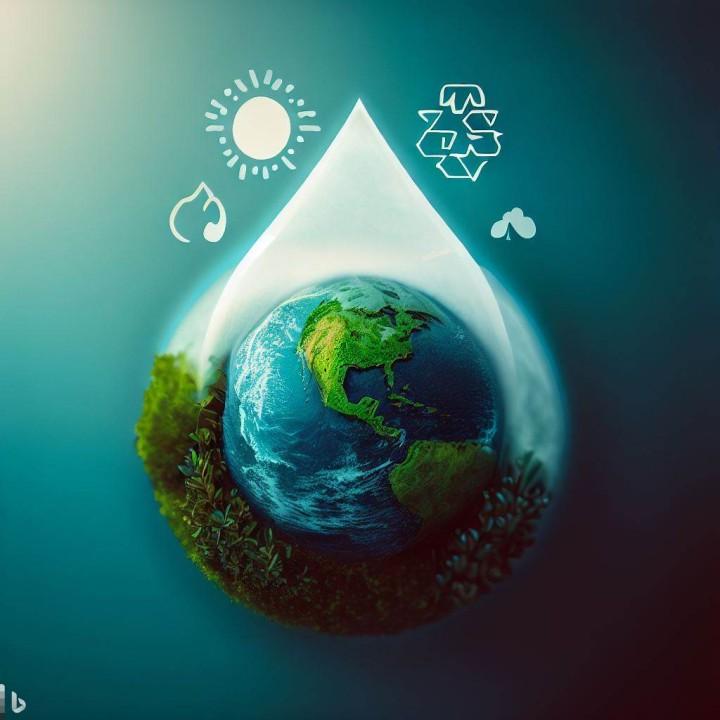Water is one of the most precious resources on Earth. It’s essential for life—every living thing depends on it. But with climate change, pollution, and overuse, fresh water is becoming scarce in many parts of the world. That’s why sustainable water management is so important. In simple terms, it means using water in a way that meets our needs today without harming future generations.
Here’s a closer look at why managing water sustainably matters and how we can all play a part.
Why Sustainable Water Management is Important
-
Water Scarcity is a Real Issue
According to the United Nations, about 2 billion people live in areas where water is scarce. By 2030, this number could increase due to growing populations and climate change. If we don’t act now, we could face severe water shortages. -
Climate Change is Making it Worse
Rising global temperatures are causing droughts, floods, and unpredictable rainfall patterns. These changes make it harder for people in certain regions to access clean water. -
Protecting Ecosystems
Water isn’t just for us—plants, animals, and entire ecosystems rely on it. When we misuse water, it can harm rivers, lakes, and wetlands, leading to a loss of biodiversity and ecosystem collapse.
Simple Ways to Save Water in Everyday Life
While governments and large organizations have a role to play, each of us can contribute to sustainable water management by making small changes in our daily routines.
1. Fix Leaks
A dripping tap may not seem like a big deal, but it can waste gallons of water over time. Fixing leaks in your home is one of the easiest ways to save water.
2. Take Shorter Showers
The average shower uses about 2.5 gallons of water per minute. Cutting your shower time by just a few minutes can save a lot of water over the course of a year.
3. Turn Off the Tap
Don’t let the tap run while brushing your teeth, washing your hands, or scrubbing dishes. This simple habit can prevent a lot of wasted water.
4. Collect Rainwater
Using a rain barrel to collect water from your roof is a great way to reduce the amount of water you take from the main supply. You can use this water to water plants, wash your car, or even flush toilets.
5. Water Plants Wisely
Water your garden early in the morning or late in the evening to reduce evaporation. You can also use mulch around plants to help the soil retain moisture.
Sustainable Agriculture and Industry
It’s not just households that need to manage water wisely. Agriculture and industry are two of the biggest users of fresh water.
-
Agriculture
Farmers can adopt practices like drip irrigation, which delivers water directly to the roots of plants, minimizing waste. Planting drought-resistant crops can also help reduce water use in farming. -
Industry
Factories and industries can recycle water and invest in water-saving technologies. By reducing their water footprint, industries can save both money and resources while helping the environment.
The Role of Governments and Communities
Governments play a crucial role in sustainable water management by creating policies and regulations to protect water sources. They can promote water conservation by:
- Building infrastructure for water storage and distribution that reduces waste.
- Encouraging water-efficient practices through incentives or regulations.
- Raising awareness about water conservation in schools and communities.
Communities can come together to implement local water-saving initiatives, like cleaning up rivers and lakes, planting trees to protect watersheds, and educating others about the importance of conserving water.
Conclusion: Every Drop Counts
Sustainable water management is a global challenge, but it’s one we can tackle together. By making small changes in our everyday lives, supporting water-efficient policies, and raising awareness, we can protect this vital resource for generations to come.
Remember: every drop counts! Let’s do our part to ensure that clean, fresh water is available to everyone, now and in the future.

